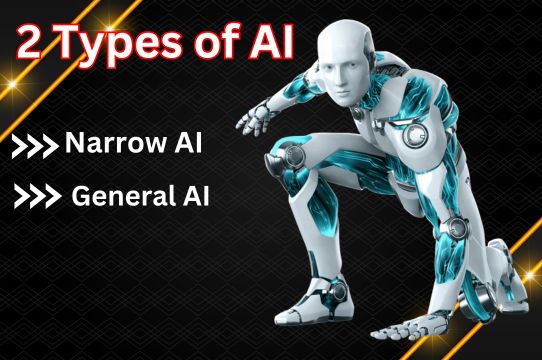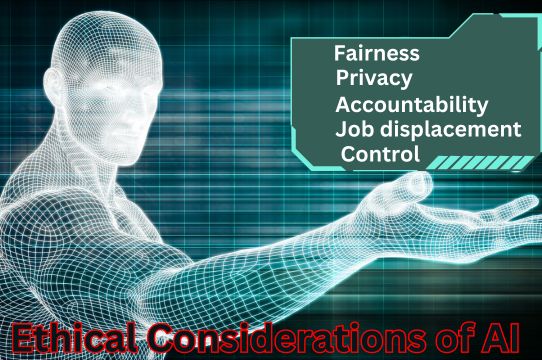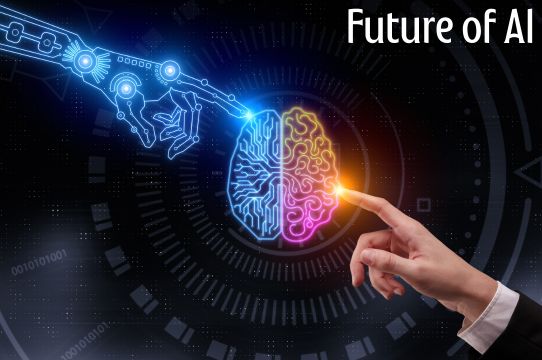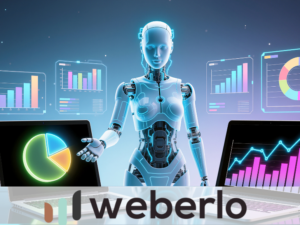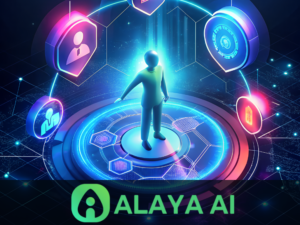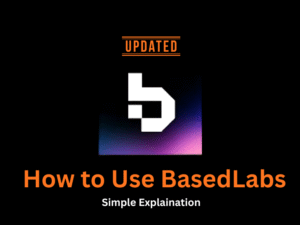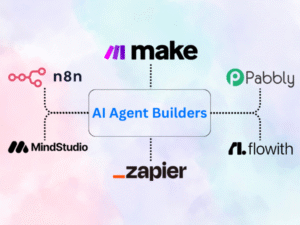Introduction
Artificial Intelligence (2024) is changing the way we live and work. To understand the advantages and disadvantages of artificial intelligence AI, it’s important to recognize that while it offers many benefits, it also comes with challenges. To make the most of AI while avoiding its pitfalls, businesses and individuals should focus on responsible development and use. This involves investing in AI education, choosing the right AI tools for your needs, and always considering the ethical implications of AI use. By taking a balanced approach, we can harness the power of AI to improve efficiency, make better decisions, and create new opportunities while protecting jobs and ensuring fair and ethical use of technology.
AI is everywhere these days. It’s in our phones, our cars, and even how companies decide what to sell us. But what exactly is AI, and why should we care about it? In this guide, we’ll break down AI in simple terms. We’ll examine what’s good, what’s not, and why it matters for our future. By the end, you’ll better understand what AI can do and how it might affect your life.
What Is Artificial Intelligence?
Think of AI as computers that can think and learn like humans do. These intelligent machines can do things like:
– Solve problems
– Make decisions
– Learn from experience
– Recognize patterns
There are two main types of AI:
1. Narrow AI: This is AI that’s good at one specific job. For example, the AI that recommends movies on Netflix or the one that helps your phone understand your voice commands.
2. General AI: This AI can do any thinking task a human can do. It doesn’t exist yet, but scientists are working on it.
AI works by using algorithms, which are like instructions that guide the computer on how to handle information. These AI chatbots process data quickly and spot patterns that people might not notice.
Advantages of Artificial Intelligence AI
AI has many benefits. Here are some of the main ones:
1. It’s fast and doesn’t get tired: AI can work 24 hours a day without needing breaks. This means it can do things like answer customer questions or monitor security cameras all the time.
2. It’s accurate: AI doesn’t make mistakes because it’s tired or distracted. This makes it great for tasks that must be done exactly right every time.
3. It can handle lots of information: AI can look at vast amounts of data and find meaningful patterns. This is useful in medical fields where AI can help doctors spot diseases in scans.
4. It can do boring jobs: AI is perfect for repetitive tasks that humans find dull. This frees up people to do more exciting and creative work.
5. It can make things personal: AI can learn what you like and give you recommendations, like suggesting movies or music you might enjoy.
Disadvantages of Artificial Intelligence AI
Despite its benefits, AI also has some drawbacks:
1. It might replace some jobs: As AI gets better at tasks, some jobs humans do now might disappear. This could lead to unemployment for some people.
2. It can be expensive: Creating and using AI systems can cost much money, especially for small businesses.
3. It’s not creative: While AI is good at analyzing data and following rules, it can’t develop genuinely new ideas like humans can.
4. It might be biased: If the data used to train AI is biased, the AI’s decisions might be unfair to certain groups of people.
5. It could be hacked: Like any computer system, AI could be attacked by hackers, which could cause big problems if the AI controls essential things.
Ethical Considerations of AI
As AI becomes more common, we must consider how to use it responsibly. Here are some important ethical issues:
1. Fairness: We need to ensure AI doesn’t discriminate against people based on race, gender, or age.
2. Privacy: AI often needs access to personal data to work well. We need to make sure this data is protected and used responsibly.
3. Accountability: If an AI makes a mistake, who’s responsible? This is a tricky question, especially for things like self-driving cars.
4. Job displacement: As AI takes over some jobs, we need to think about how to help people whose jobs are affected.
5. Control: As AI gets more innovative, we need to ensure humans stay in control and that AI doesn’t make important decisions without human oversight.
Use of AI in Different Industries
AI in different fields. Here are some examples:
1. Healthcare: AI helps doctors diagnose diseases, plan treatments, and even predict health problems before they happen.
2. Finance: Banks use AI to detect fraud, assess risk, and make investment decisions.
3. Retail: Online stores use AI to recommend products, manage inventory, and provide customer service.
4. Manufacturing: Factories use AI to control robots, predict when machines need maintenance, and improve product quality.
5. Education: AI can create personalized student machine-learning plans and help teachers grade assignments.
6. Transportation: Self-driving cars use AI to navigate roads and avoid accidents.
7. Entertainment: Streaming services use AI to recommend movies and music, while game developers use it to create more realistic virtual worlds.
Choosing the Right AI Program
If you’re considering using AI in your business or personal life, here’s how to choose the right program to understand the advantages and disadvantages of artificial intelligence AI:
1. Know what you need: Determine what problem you want AI to solve. Do you want to automate a task? Analyze data? Improve customer service?
2. Look at the features: AI programs can do different things. Make sure the one you choose can do what you need.
3. Consider the cost: AI can be expensive. Think about your budget and look for a program that gives you good value for your money.
4. Check reviews: See what other people who have used the program say about it. This can help you avoid problems.
5. Try before you buy: Many AI programs offer free trials. Use these to see if the program works well for you.
6. Think about support: Choose a program that offers good customer support in case you have problems or questions.
The Future of AI
AI is developing quickly, and it’s hard to predict precisely what will happen in the future. However, here are some trends we might see:
1. Smarter AI: AI will likely become more advanced, able to handle more complex tasks and make better decisions.
2. More personalization: AI could create highly personalized experiences in education, entertainment, and healthcare.
3. AI assistants everywhere: We might interact with AI assistants in our homes, cars, and workplaces more often.
4. New job opportunities: While AI might replace some jobs, it will also create new ones, especially in fields related to developing and managing AI systems.
5. Ethical AI: There will likely be more focus on developing fair, transparent AI that respects privacy.
How to Prepare for an AI-Driven Future
As AI becomes more important, here are some things you can do to prepare:
1. Learn about AI: Understanding how AI works can help you make better decisions about using it.
2. Develop skills that AI can’t easily replicate: Focus on skills like creativity, emotional intelligence, and complex problem-solving.
3. Stay flexible: Be ready to learn new skills and adapt to changes in your job or industry.
4. Think critically: Don’t assume AI is always right. Learn to question and evaluate AI-generated results.
5. Consider ethical implications: When using AI, consider potential ethical issues and how to address them.
Conclusion
AI is a powerful technology that’s changing our world in many ways. It offers exciting possibilities, from improving healthcare to enhancing our daily lives. However, the advantages and disadvantages of artificial intelligence AI include challenges like potential job losses and ethical concerns.
The key to making the most of AI is to use it responsibly. This means:
– Investing in education about AI
– Choosing AI tools carefully
– Always considering the ethical implications of AI use
– Focusing on developing human skills that complement AI
By taking a balanced approach, we can enjoy the benefits of AI while minimizing its risks. As AI continues to develop, it will be necessary for all of us – individuals, businesses, and governments – to work together to shape an AI-driven future that benefits everyone.
Remember, AI is a tool. Like any tool, its value depends on how we use it. By understanding AI and using it wisely, we can harness its power to solve problems, make discoveries, and create a better world.
FAQs
What is Artificial Intelligence?
AI refers to the simulation of human intelligence in machines, allowing them to perform tasks such as learning, problem-solving, and decision-making.
What are the advantages of AI?
AI offers numerous advantages, including increased efficiency, 24/7 availability, enhanced data analysis, improved decision-making, and personalized experiences.
What are the disadvantages of AI?
Some disadvantages of AI include job displacement, high costs, lack of creativity, ethical concerns, and increased dependence on technology.
How is AI used in different industries?
AI is used in various industries, including healthcare, finance, retail, manufacturing, and education, to improve processes, enhance customer experiences, and drive innovation.
What ethical considerations should be taken into account with AI?
Key ethical considerations include bias and fairness, privacy, accountability, autonomy, and the impact on employment.
How do I choose the right AI program?
To choose the right AI program, identify your needs, evaluate features, consider costs, check reviews, and take advantage of trials and support.
I’m a passionate AI enthusiast and the founder of AI UPSURGE. With a deep interest in the latest developments in artificial intelligence, I’m dedicated to making AI accessible and understandable for everyone. Through insightful articles, practical guides, and aims to empower readers to harness the power of AI in their daily lives and professional endeavors. When not writing or exploring the latest AI trends.


